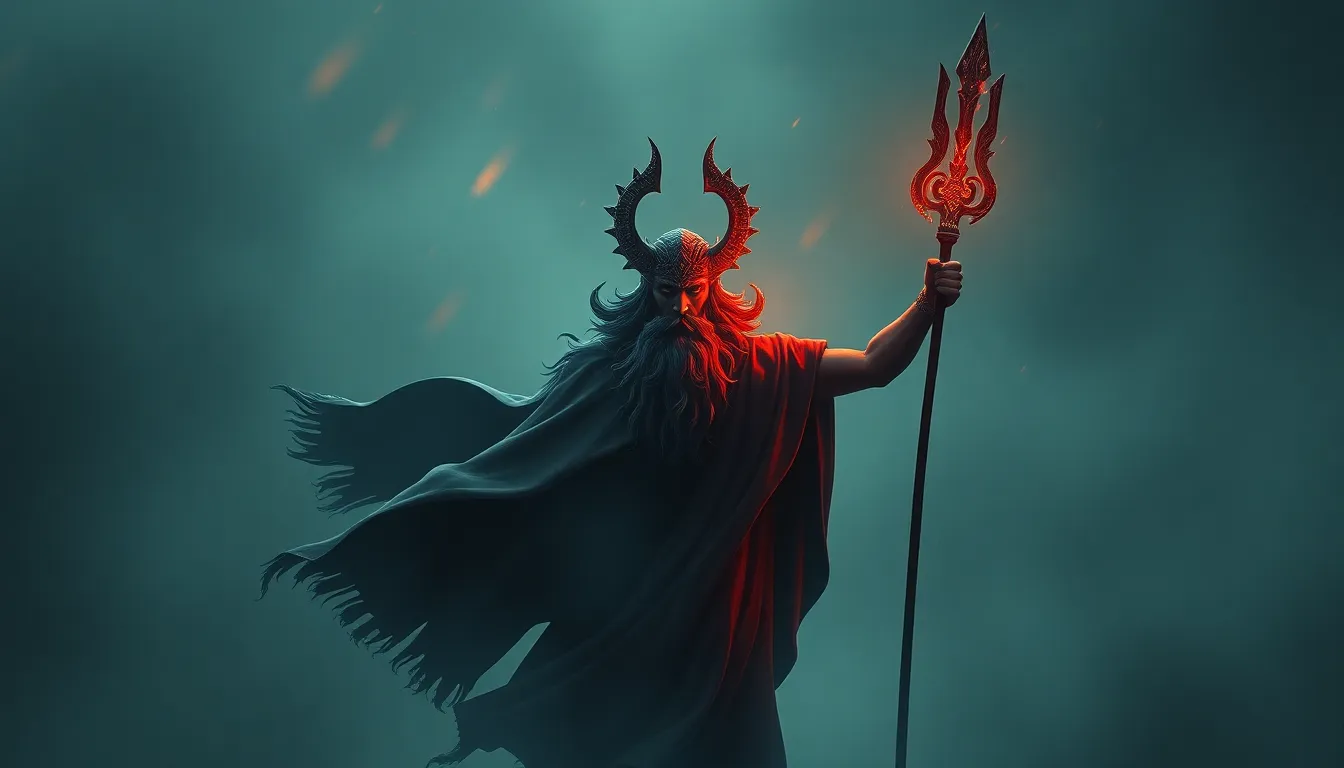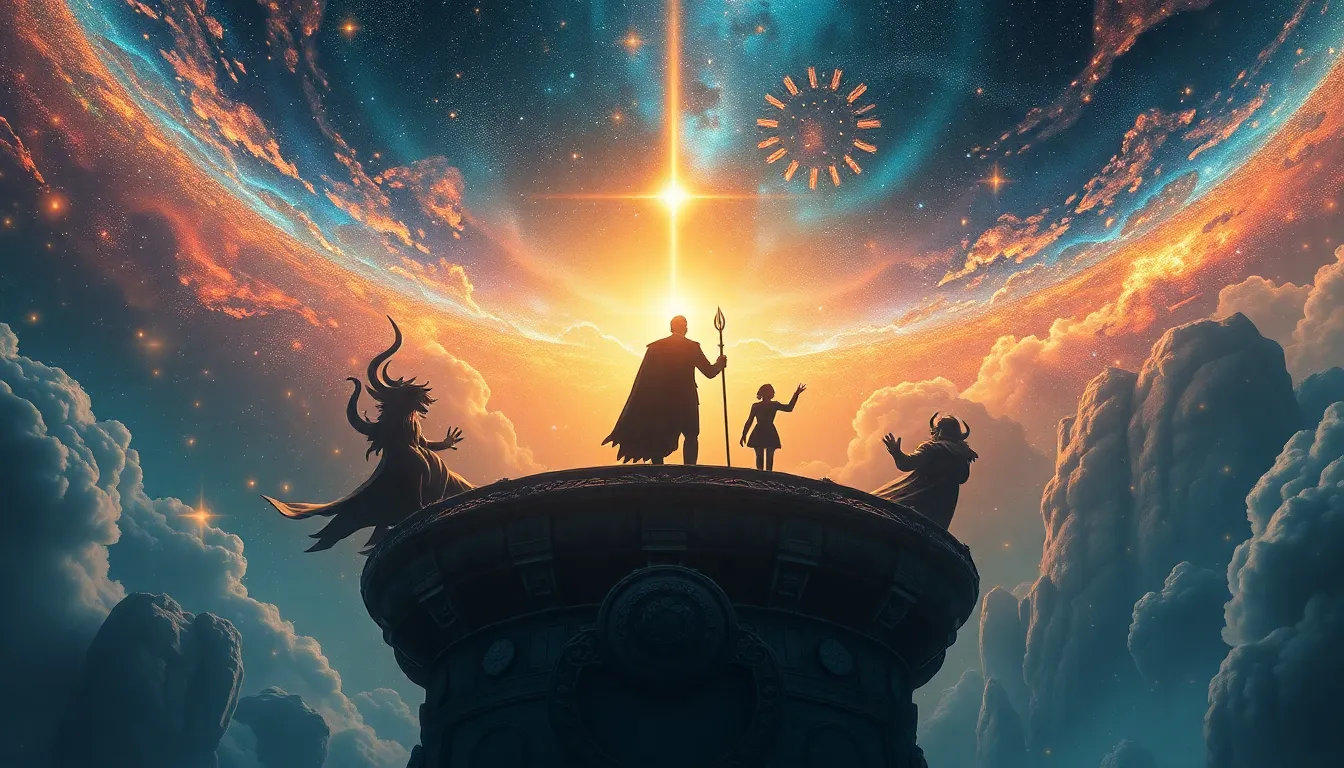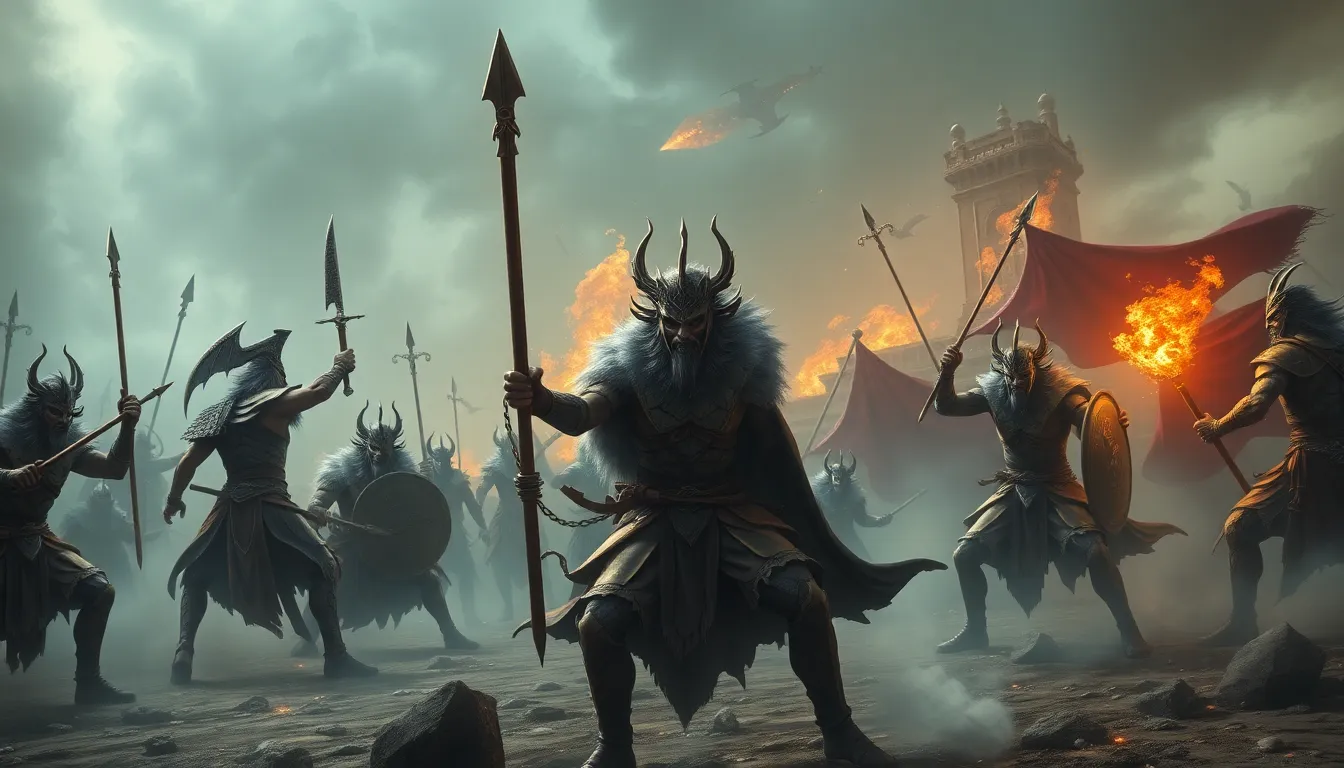The Importance of Oral Tradition in African Mythology
In many African cultures, written records were not traditionally used to preserve and transmit knowledge. Instead, stories, myths, and legends were passed down orally from one generation to the next. This oral tradition helped to ensure that the stories remained vibrant and relevant, as they could be adapted and modified to reflect the changing needs of the community. The oral nature of African mythology also meant that it was more accessible to all members of society, regardless of their literacy or social status.
6. The Role of Tricksters and Culture Heroes in Shaping the World
In African mythology, tricksters and culture heroes are often portrayed as pivotal figures in the creation and shaping of the world. Tricksters, such as Anansi the spider in West African folklore or Legba in Fon mythology, are often depicted as cunning and mischievous characters who use their intelligence to outwit others and bring about change. Culture heroes, on the other hand, are typically revered ancestors or deities who are credited with introducing important cultural practices and technologies to humanity. They often symbolize the triumph of civilization over chaos.
7. The Destruction of the World: Chaos and Renewal in African Mythology
Many African myths and legends feature stories of the destruction of the world, followed by its subsequent renewal. These stories often reflect the cyclical nature of existence and the belief that even in the face of devastation, there is always hope for rebirth. In some traditions, the destruction of the world is brought about by natural disasters, such as floods or earthquakes, while in others, it is caused by human actions, such as war or greed.
8. The Great Flood: Comparative Narratives from African Traditions
The Great Flood is a common motif in mythologies around the world, and African mythology is no exception. In many African cultures, there are stories of a great flood that destroyed the world, leaving only a few survivors to repopulate the earth. While these stories share some similarities with the biblical account of Noah's flood, they also have unique elements that reflect the specific beliefs and traditions of African cultures.
9. Cosmic Dualism: The Battle Between Good and Evil in African Mythology
Cosmic dualism, the idea that the universe is divided into opposing forces of good and evil, is a common theme in African mythology. These opposing forces are often represented by pairs of deities, such as the sky god and the earth goddess, or by animals, such as the lion and the serpent. The battle between good and evil is often portrayed as a cosmic struggle that shapes the fate of the world and humanity.
10. The End and the Beginning: Cycles of Creation and Destruction
Many African myths and legends describe the world as existing in a cyclical pattern of creation and destruction. In these stories, the world is created, destroyed, and then recreated again, in a never-ending cycle. This belief reflects the African concept of time as a spiral rather than a linear progression, and it emphasizes the interconnectedness of all things.
FAQs
What is the significance of oral tradition in African mythology?
Oral tradition plays a crucial role in preserving and transmitting the stories and beliefs of African mythology, ensuring their relevance and accessibility to all members of society.What are the common themes found in African creation myths?
Many African creation myths share common themes, such as the presence of a sky god and an earth goddess, the sacredness of nature, and the origin of humans from divine or animal ancestors.How do tricksters and culture heroes contribute to African mythology?
Tricksters, such as Anansi the spider, embody cunning and intelligence, while culture heroes introduce important cultural practices and technologies, shaping the world and human civilization.
What is the significance of the Great Flood in African mythology?
The Great Flood is a common motif that symbolizes destruction and renewal, emphasizing the cyclical nature of existence and the resilience of life.How is cosmic dualism represented in African mythology?
Cosmic dualism is often depicted through opposing deities or forces, such as the sky god and the earth goddess, representing the constant struggle between good and evil that shapes the universe.
African mythology is a vast and diverse collection of stories, beliefs, and traditions that have been passed down through generations by word of mouth. These stories provide insights into the origins of the world, the nature of humanity, and the forces that shape our lives. One of the most important aspects of African mythology is the emphasis on oral tradition.
The Importance of Oral Tradition in African Mythology
In many African cultures, written records were not traditionally used to preserve and transmit knowledge. Instead, stories, myths, and legends were passed down orally from one generation to the next. This oral tradition helped to ensure that the stories remained vibrant and relevant, as they could be adapted and modified to reflect the changing needs of the community. The oral nature of African mythology also meant that it was more accessible to all members of society, regardless of their literacy or social status.
6. The Role of Tricksters and Culture Heroes in Shaping the World
In African mythology, tricksters and culture heroes are often portrayed as pivotal figures in the creation and shaping of the world. Tricksters, such as Anansi the spider in West African folklore or Legba in Fon mythology, are often depicted as cunning and mischievous characters who use their intelligence to outwit others and bring about change. Culture heroes, on the other hand, are typically revered ancestors or deities who are credited with introducing important cultural practices and technologies to humanity. They often symbolize the triumph of civilization over chaos.
7. The Destruction of the World: Chaos and Renewal in African Mythology
Many African myths and legends feature stories of the destruction of the world, followed by its subsequent renewal. These stories often reflect the cyclical nature of existence and the belief that even in the face of devastation, there is always hope for rebirth. In some traditions, the destruction of the world is brought about by natural disasters, such as floods or earthquakes, while in others, it is caused by human actions, such as war or greed.
8. The Great Flood: Comparative Narratives from African Traditions
The Great Flood is a common motif in mythologies around the world, and African mythology is no exception. In many African cultures, there are stories of a great flood that destroyed the world, leaving only a few survivors to repopulate the earth. While these stories share some similarities with the biblical account of Noah's flood, they also have unique elements that reflect the specific beliefs and traditions of African cultures.
9. Cosmic Dualism: The Battle Between Good and Evil in African Mythology
Cosmic dualism, the idea that the universe is divided into opposing forces of good and evil, is a common theme in African mythology. These opposing forces are often represented by pairs of deities, such as the sky god and the earth goddess, or by animals, such as the lion and the serpent. The battle between good and evil is often portrayed as a cosmic struggle that shapes the fate of the world and humanity.
10. The End and the Beginning: Cycles of Creation and Destruction
Many African myths and legends describe the world as existing in a cyclical pattern of creation and destruction. In these stories, the world is created, destroyed, and then recreated again, in a never-ending cycle. This belief reflects the African concept of time as a spiral rather than a linear progression, and it emphasizes the interconnectedness of all things.
FAQs
What is the significance of oral tradition in African mythology?
Oral tradition plays a crucial role in preserving and transmitting the stories and beliefs of African mythology, ensuring their relevance and accessibility to all members of society.What are the common themes found in African creation myths?
Many African creation myths share common themes, such as the presence of a sky god and an earth goddess, the sacredness of nature, and the origin of humans from divine or animal ancestors.How do tricksters and culture heroes contribute to African mythology?
Tricksters, such as Anansi the spider, embody cunning and intelligence, while culture heroes introduce important cultural practices and technologies, shaping the world and human civilization.
What is the significance of the Great Flood in African mythology?
The Great Flood is a common motif that symbolizes destruction and renewal, emphasizing the cyclical nature of existence and the resilience of life.How is cosmic dualism represented in African mythology?
Cosmic dualism is often depicted through opposing deities or forces, such as the sky god and the earth goddess, representing the constant struggle between good and evil that shapes the universe.
African Mythology: Stories of Creation and Destruction
African mythology is a vast and diverse collection of stories, beliefs, and traditions that have been passed down through generations by word of mouth. These stories provide insights into the origins of the world, the nature of humanity, and the forces that shape our lives. One of the most important aspects of African mythology is the emphasis on oral tradition.
The Importance of Oral Tradition in African Mythology
In many African cultures, written records were not traditionally used to preserve and transmit knowledge. Instead, stories, myths, and legends were passed down orally from one generation to the next. This oral tradition helped to ensure that the stories remained vibrant and relevant, as they could be adapted and modified to reflect the changing needs of the community. The oral nature of African mythology also meant that it was more accessible to all members of society, regardless of their literacy or social status.
6. The Role of Tricksters and Culture Heroes in Shaping the World
In African mythology, tricksters and culture heroes are often portrayed as pivotal figures in the creation and shaping of the world. Tricksters, such as Anansi the spider in West African folklore or Legba in Fon mythology, are often depicted as cunning and mischievous characters who use their intelligence to outwit others and bring about change. Culture heroes, on the other hand, are typically revered ancestors or deities who are credited with introducing important cultural practices and technologies to humanity. They often symbolize the triumph of civilization over chaos.
7. The Destruction of the World: Chaos and Renewal in African Mythology
Many African myths and legends feature stories of the destruction of the world, followed by its subsequent renewal. These stories often reflect the cyclical nature of existence and the belief that even in the face of devastation, there is always hope for rebirth. In some traditions, the destruction of the world is brought about by natural disasters, such as floods or earthquakes, while in others, it is caused by human actions, such as war or greed.
8. The Great Flood: Comparative Narratives from African Traditions
The Great Flood is a common motif in mythologies around the world, and African mythology is no exception. In many African cultures, there are stories of a great flood that destroyed the world, leaving only a few survivors to repopulate the earth. While these stories share some similarities with the biblical account of Noah's flood, they also have unique elements that reflect the specific beliefs and traditions of African cultures.
9. Cosmic Dualism: The Battle Between Good and Evil in African Mythology
Cosmic dualism, the idea that the universe is divided into opposing forces of good and evil, is a common theme in African mythology. These opposing forces are often represented by pairs of deities, such as the sky god and the earth goddess, or by animals, such as the lion and the serpent. The battle between good and evil is often portrayed as a cosmic struggle that shapes the fate of the world and humanity.
10. The End and the Beginning: Cycles of Creation and Destruction
Many African myths and legends describe the world as existing in a cyclical pattern of creation and destruction. In these stories, the world is created, destroyed, and then recreated again, in a never-ending cycle. This belief reflects the African concept of time as a spiral rather than a linear progression, and it emphasizes the interconnectedness of all things.
FAQs
What is the significance of oral tradition in African mythology?
Oral tradition plays a crucial role in preserving and transmitting the stories and beliefs of African mythology, ensuring their relevance and accessibility to all members of society.What are the common themes found in African creation myths?
Many African creation myths share common themes, such as the presence of a sky god and an earth goddess, the sacredness of nature, and the origin of humans from divine or animal ancestors.How do tricksters and culture heroes contribute to African mythology?
Tricksters, such as Anansi the spider, embody cunning and intelligence, while culture heroes introduce important cultural practices and technologies, shaping the world and human civilization.
What is the significance of the Great Flood in African mythology?
The Great Flood is a common motif that symbolizes destruction and renewal, emphasizing the cyclical nature of existence and the resilience of life.How is cosmic dualism represented in African mythology?
Cosmic dualism is often depicted through opposing deities or forces, such as the sky god and the earth goddess, representing the constant struggle between good and evil that shapes the universe.
African Mythology: Stories of Creation and Destruction
African mythology is a vast and diverse collection of stories, beliefs, and traditions that have been passed down through generations by word of mouth. These stories provide insights into the origins of the world, the nature of humanity, and the forces that shape our lives. One of the most important aspects of African mythology is the emphasis on oral tradition.
The Importance of Oral Tradition in African Mythology
In many African cultures, written records were not traditionally used to preserve and transmit knowledge. Instead, stories, myths, and legends were passed down orally from one generation to the next. This oral tradition helped to ensure that the stories remained vibrant and relevant, as they could be adapted and modified to reflect the changing needs of the community. The oral nature of African mythology also meant that it was more accessible to all members of society, regardless of their literacy or social status.
6. The Role of Tricksters and Culture Heroes in Shaping the World
In African mythology, tricksters and culture heroes are often portrayed as pivotal figures in the creation and shaping of the world. Tricksters, such as Anansi the spider in West African folklore or Legba in Fon mythology, are often depicted as cunning and mischievous characters who use their intelligence to outwit others and bring about change. Culture heroes, on the other hand, are typically revered ancestors or deities who are credited with introducing important cultural practices and technologies to humanity. They often symbolize the triumph of civilization over chaos.
7. The Destruction of the World: Chaos and Renewal in African Mythology
Many African myths and legends feature stories of the destruction of the world, followed by its subsequent renewal. These stories often reflect the cyclical nature of existence and the belief that even in the face of devastation, there is always hope for rebirth. In some traditions, the destruction of the world is brought about by natural disasters, such as floods or earthquakes, while in others, it is caused by human actions, such as war or greed.
8. The Great Flood: Comparative Narratives from African Traditions
The Great Flood is a common motif in mythologies around the world, and African mythology is no exception. In many African cultures, there are stories of a great flood that destroyed the world, leaving only a few survivors to repopulate the earth. While these stories share some similarities with the biblical account of Noah's flood, they also have unique elements that reflect the specific beliefs and traditions of African cultures.
9. Cosmic Dualism: The Battle Between Good and Evil in African Mythology
Cosmic dualism, the idea that the universe is divided into opposing forces of good and evil, is a common theme in African mythology. These opposing forces are often represented by pairs of deities, such as the sky god and the earth goddess, or by animals, such as the lion and the serpent. The battle between good and evil is often portrayed as a cosmic struggle that shapes the fate of the world and humanity.
10. The End and the Beginning: Cycles of Creation and Destruction
Many African myths and legends describe the world as existing in a cyclical pattern of creation and destruction. In these stories, the world is created, destroyed, and then recreated again, in a never-ending cycle. This belief reflects the African concept of time as a spiral rather than a linear progression, and it emphasizes the interconnectedness of all things.
FAQs
What is the significance of oral tradition in African mythology?
Oral tradition plays a crucial role in preserving and transmitting the stories and beliefs of African mythology, ensuring their relevance and accessibility to all members of society.What are the common themes found in African creation myths?
Many African creation myths share common themes, such as the presence of a sky god and an earth goddess, the sacredness of nature, and the origin of humans from divine or animal ancestors.How do tricksters and culture heroes contribute to African mythology?
Tricksters, such as Anansi the spider, embody cunning and intelligence, while culture heroes introduce important cultural practices and technologies, shaping the world and human civilization.
What is the significance of the Great Flood in African mythology?
The Great Flood is a common motif that symbolizes destruction and renewal, emphasizing the cyclical nature of existence and the resilience of life.How is cosmic dualism represented in African mythology?
Cosmic dualism is often depicted through opposing deities or forces, such as the sky god and the earth goddess, representing the constant struggle between good and evil that shapes the universe.



